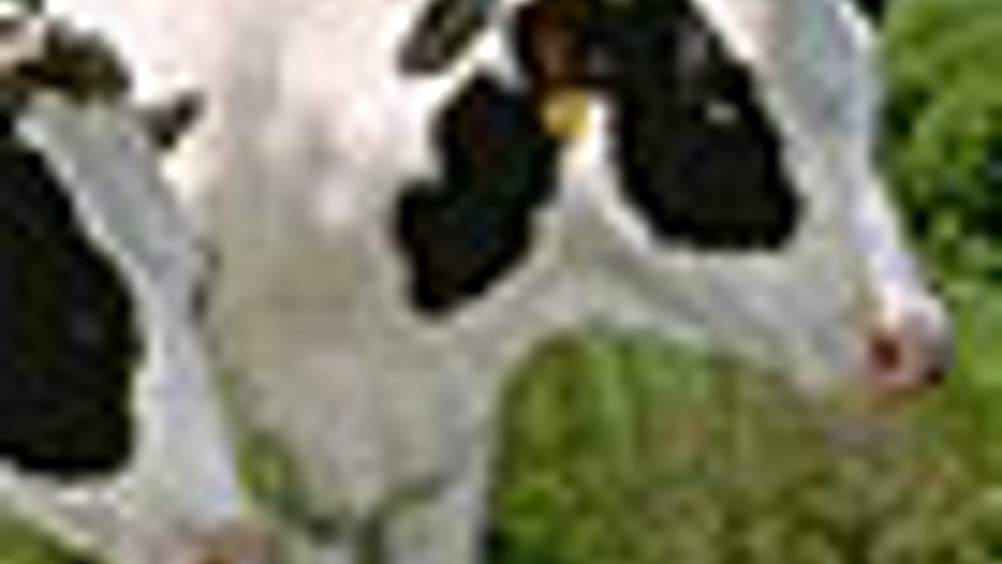Low-gas cattle feed

Beef farmers can breathe easier, thanks to University of Alberta researchers who have developed a formula to reduce methane gas in cattle.
By examining how much starch, sugar, cellulose, ash, fat and other elements were contained in cattle feed, the scientists were able to formulate equations to predict how much methane a cow would produce based on diet.
They are hoping that their research will provide beef producers with the tools to reduce the methane gas their cattle produce by as much as 25 per cent.
'That's good news for the environment,' said Stephen Moore, a professor of agricultural, food and nutritional science at the University of Alberta.
'Methane is a greenhouse gas, and in Canada, cattle account for a fair amount of the total emissions.
'By identifying factors such as diet that can reduce emissions, we hope to give beef farmers a way to lessen the environmental footprint of their cattle production, and methane reductions in the order of 25 per cent are certainly achievable.'
Register now to continue reading
Thanks for visiting The Engineer. You’ve now reached your monthly limit of news stories. Register for free to unlock unlimited access to all of our news coverage, as well as premium content including opinion, in-depth features and special reports.
Benefits of registering
-
In-depth insights and coverage of key emerging trends
-
Unrestricted access to special reports throughout the year
-
Daily technology news delivered straight to your inbox










Simulations show Optimal Design for Bladeless Wind Turbines
"an 80cm mast" Really? I'm short but that's only half my height! Do they mean 800cm?